In celebration of this year’s World Environment Day, three master’s students from the International Master of Environmental Policy program launched the “100 Tiny Wonders of DKU Biodiversity” project. The initiative invited faculty, students, and staff to share personal stories about their interactions and encounters with nature on campus, highlighting DKU’s rich but often overlooked biodiversity.
Scattered across the DKU grounds, there are many small but remarkable natural sights – plants, insects, and other living wonders that often go unnoticed. students hope to foster a deeper connection between the community and the natural environment by encouraging observation and reflection.
To kick off the project, nine stories were selected as the first “Tiny Wonders” to spark curiosity about campus biodiversity. Below are a few highlights from the collection:
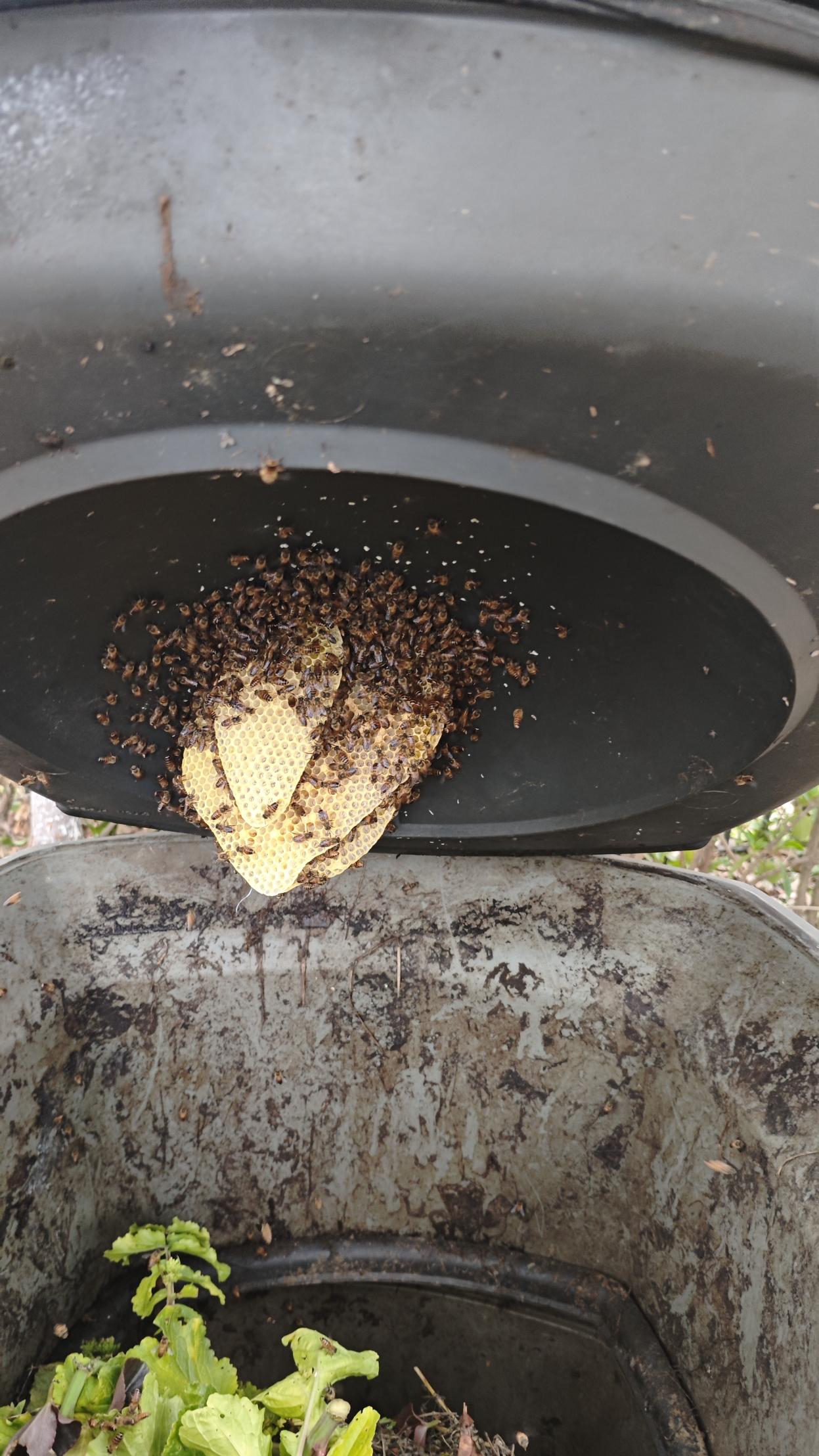
“The call came from students who had discovered a wild hive nestled in the campus compost bin. Intrigued, they led me to the small, thriving colony – its steady hum radiating warmth as thousands of worker bees moved with purpose.
As I approached, a single bee broke away, circling my head before landing lightly on my arm. Was she guarding or foraging? For a fleeting moment, we connected – two creatures suspended in mutual curiosity – before she dissolved back into the golden-black whirl of the hive.
German beekeepers speak of Der Bienen: not merely a hive, but a singular living entity where every bee matters equally. Standing before this ancient, selfless collective, I understood anew why such fragile perfection demands protection.”
- Johann Asmus León
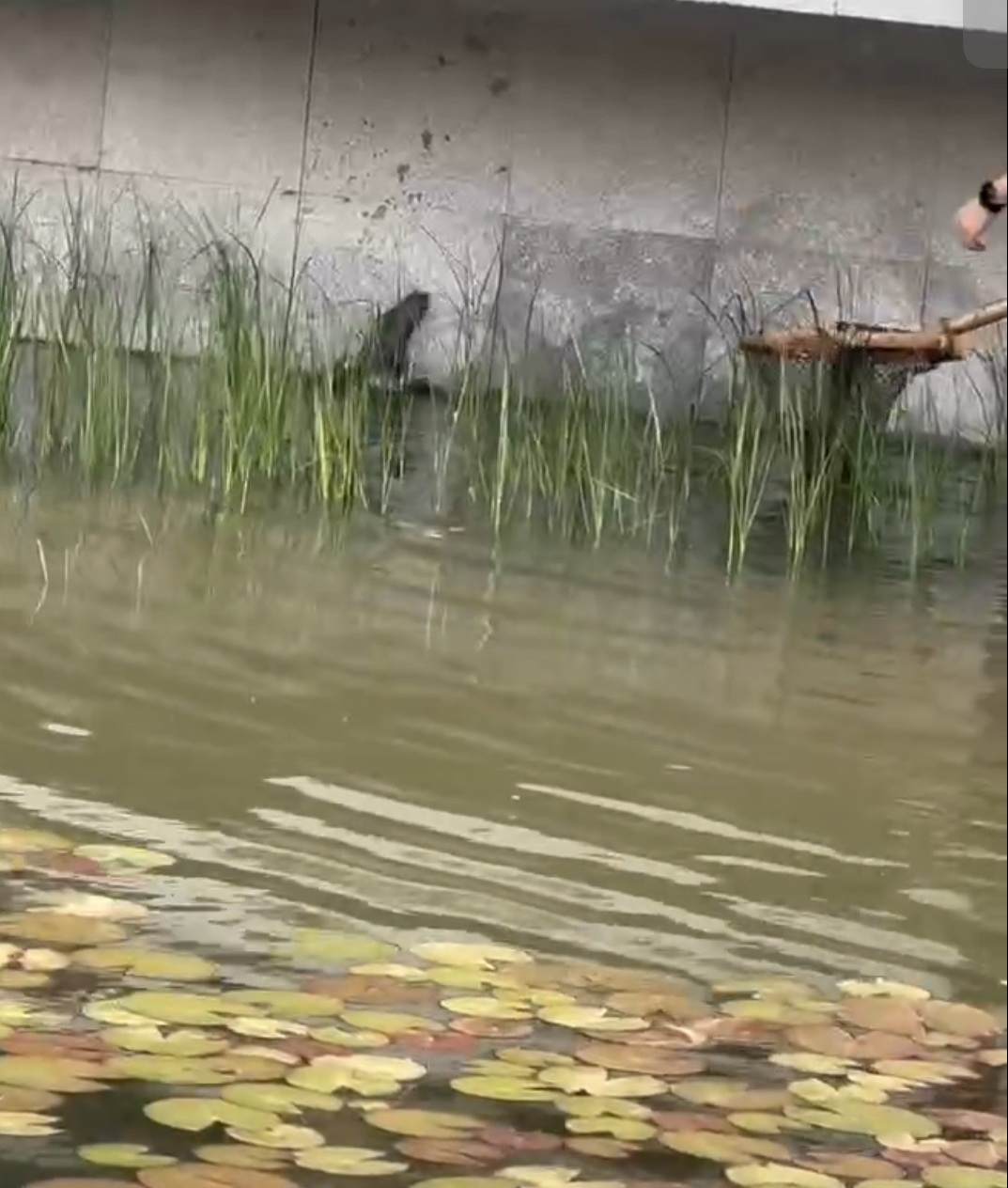
“After a rainstorm, a Spotted Dove crashed into the pond beside IB Building, where its soaked feathers prevented it from flying and it was on the verge of drowning. This reminds us that urban waters are potential traps for non-waterfowl. We quickly rescued the bird with a netting, carefully drained its wings and back with a dry cloth, and placed it in a warm, wind-sheltered area to recover. This rescue, though small, is a direct action to preserve a fragile link in our shared campus ecosystem – protecting every bird is guarding the roots of DKU’s biodiversity.”
—— Elsie
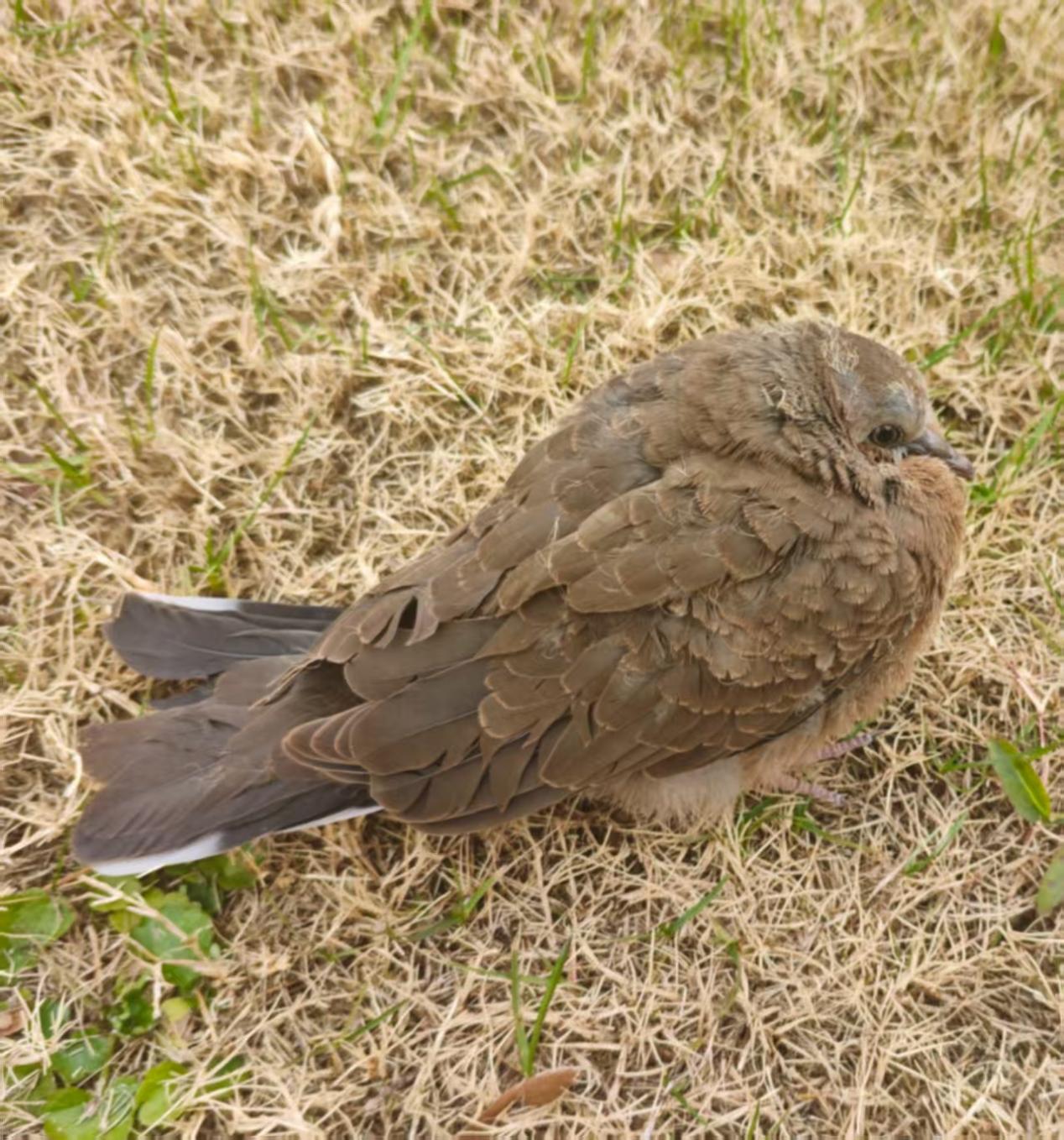
“On a March morning, I spotted a fluffy little ball on the campus lawn. As I approached, I realized it was a spotted dove, curled up and fast asleep. It was so deeply asleep that it didn’t even notice me coming close. I gently reached out and touched it. Only then did it startle awake, fluttering its wings as it flew away. Watching it disappear into the distance, I suddenly felt a pang of guilt – I might have interrupted its sweet dream.
Still, getting to observe a wild dove up close like this was a rare stroke of luck. Its grayish-brown feathers and the delicate pearl-like spots on its neck were clearly visible. This unexpected morning encounter turned an ordinary day into something special.”
- Kathy
[Special note: The Spotted Dove is basically the “ditzy sweetheart” of the bird world – its adorably slow reflexes give us front-row seats to observe it up close. But remember: it’s okay to laugh at its dopey charm, but never take advantage of its innocence. These campus airheads deserve our extra tender loving care!]
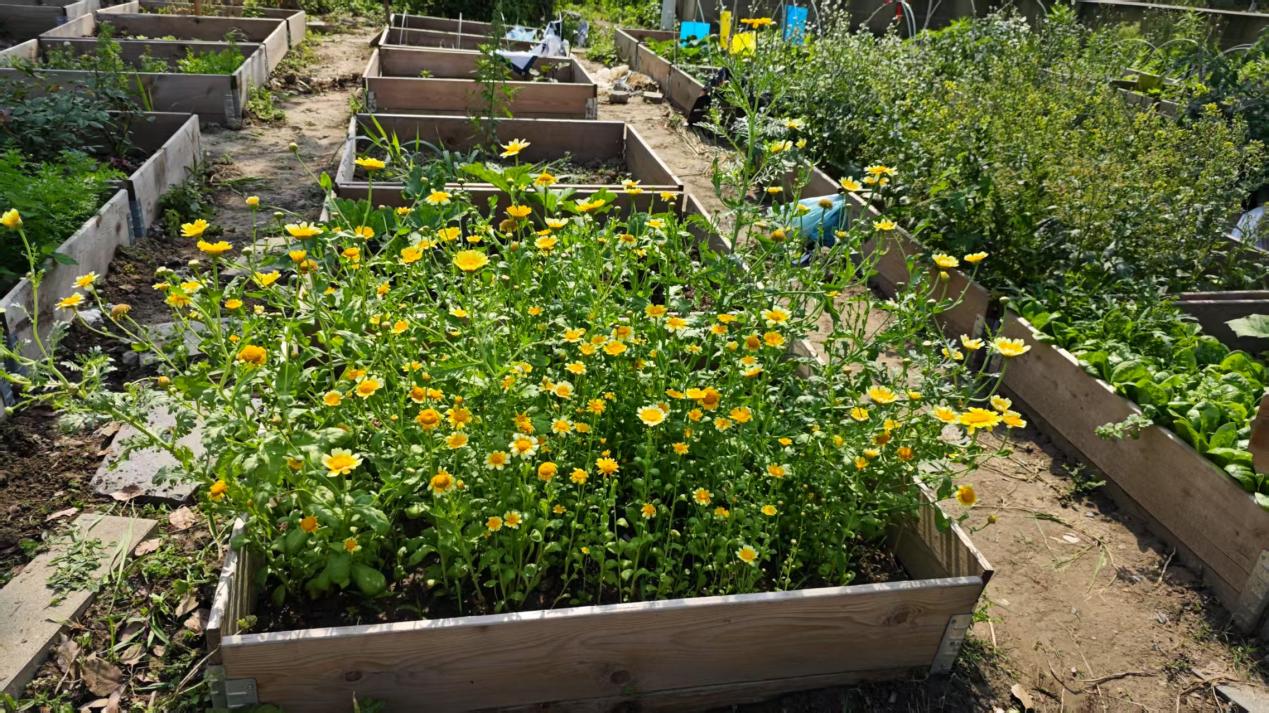
“I was too busy with finals to harvest the crown daisies vegetable in my community garden. When I finally checked on them, they had grown tall and all bloomed – no longer edible.
At first, I felt a little disappointed, but then I noticed how pretty the little yellow flowers were, attracting bees and butterflies. They fluttered around the blossoms, making the garden livelier.
Finally, I decided not to pull them out. I would just let them keep blooming – adding color to the garden and providing food for pollinators. Many DKU gardeners had never seen crown daisy flowers before, so they would stop to admire them and say, “How lovely!”
— Xinxue
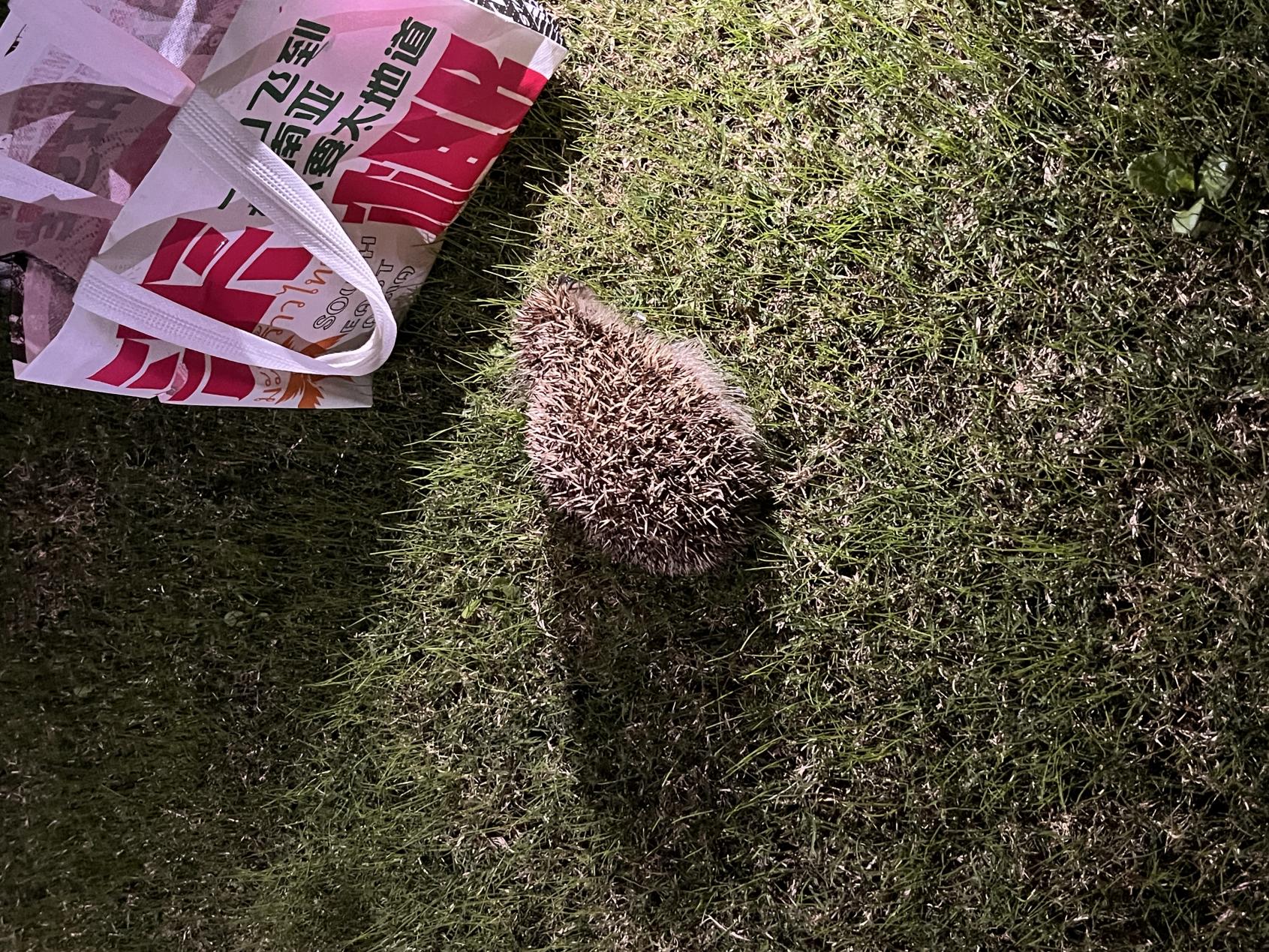
“One evening, as I walked back through the south gate of campus, I spotted a tiny, moving mound on the lawn. When I crouched down for a closer look, it suddenly froze. That’s when I saw all those prickly spines – turns out it was a hedgehog! It was my first time seeing one in the wild, and I never expected to find one right here on campus!”
- Huangfu
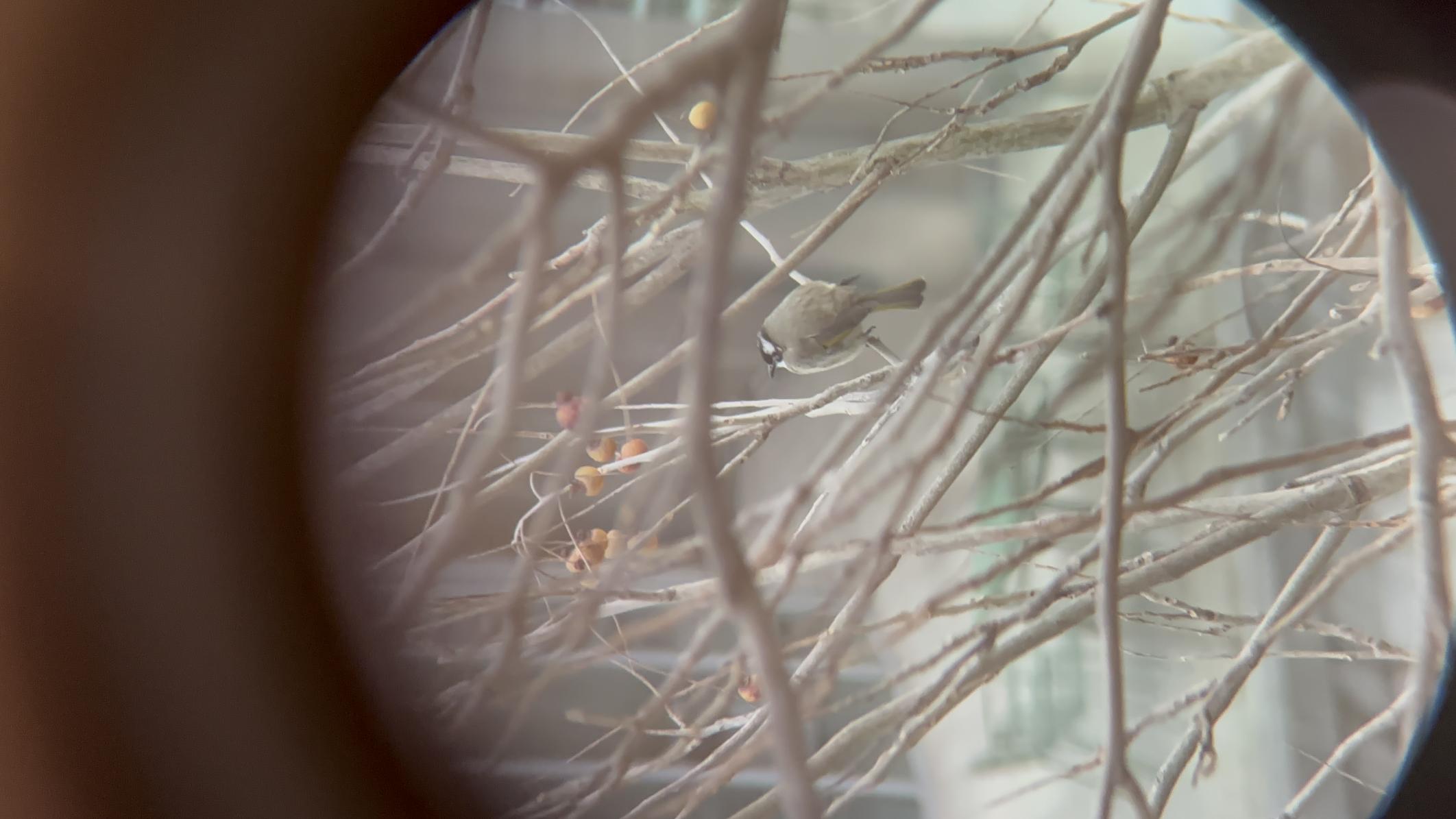
“Every so often, a bird will land on the stone ledge that juts out from my window at Student Residence Hall. An oriental turtle dove, a pale thrush, a red-billed starling, and many more that I don’t recall the names for. I come from a cold country where I rarely see birds aside from common sparrows, and so it’s always a revelation and delight to be met with so many different characters just a breadth of a glass window away. They come most often after dawn, when the morning still streaks in blush gold, singing out to their compatriots, and greeting me with yet another bracing beginning.”
- Judy
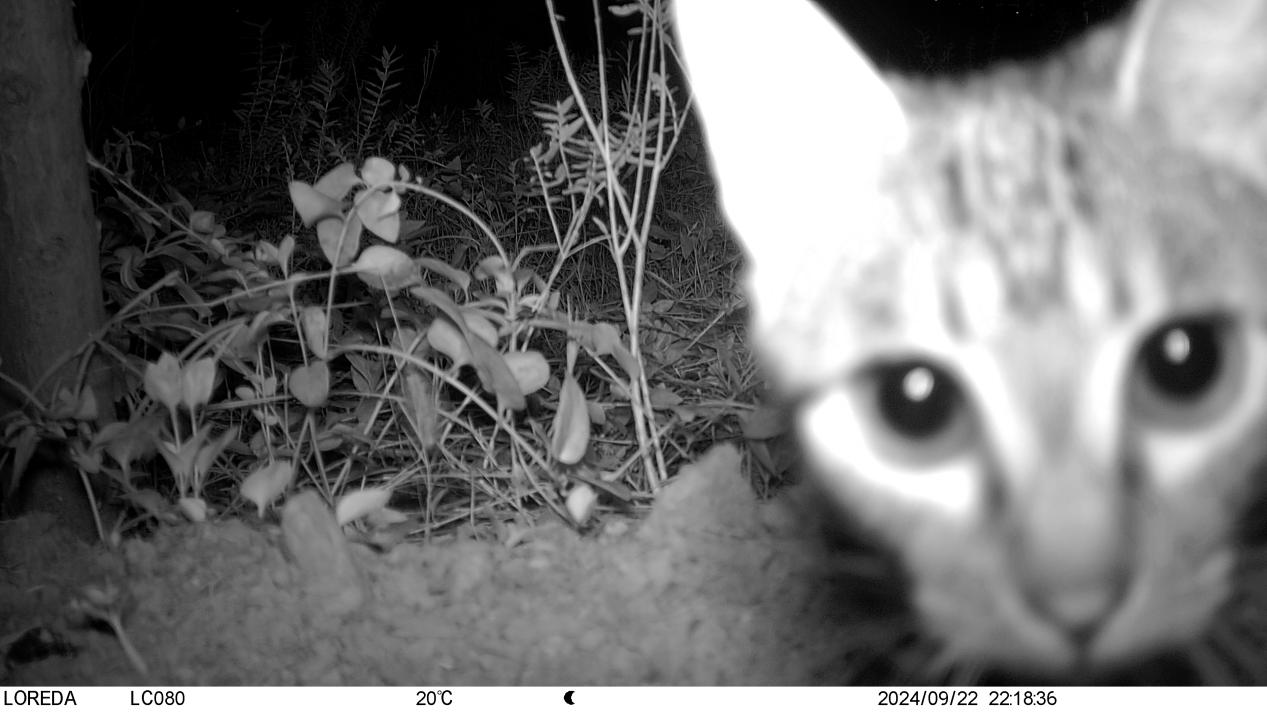
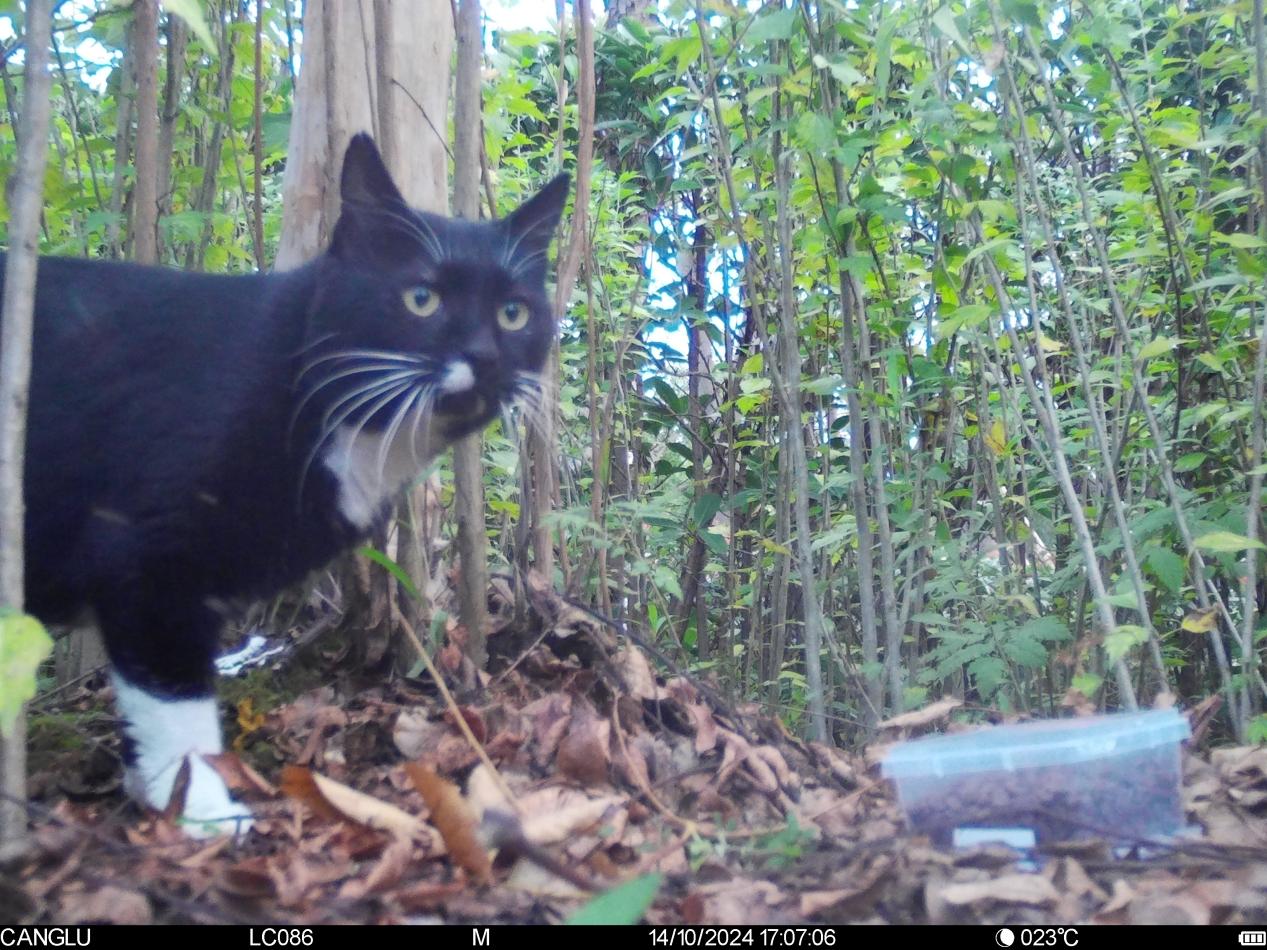
“I previously used an infrared camera in a course to observe the situation of stray cats on campus, and during the process we would place cat food in front of the camera as bait in order to better capture the stray cats. Later, when looking back at the photos taken after the infrared camera was triggered, I found that many birds would come to share the cat food that originally belonged to the cats, sometimes even from one or two birds to more and more, as if they were calling out to their friends, which I thought was a very interesting observation.”
- Nancy
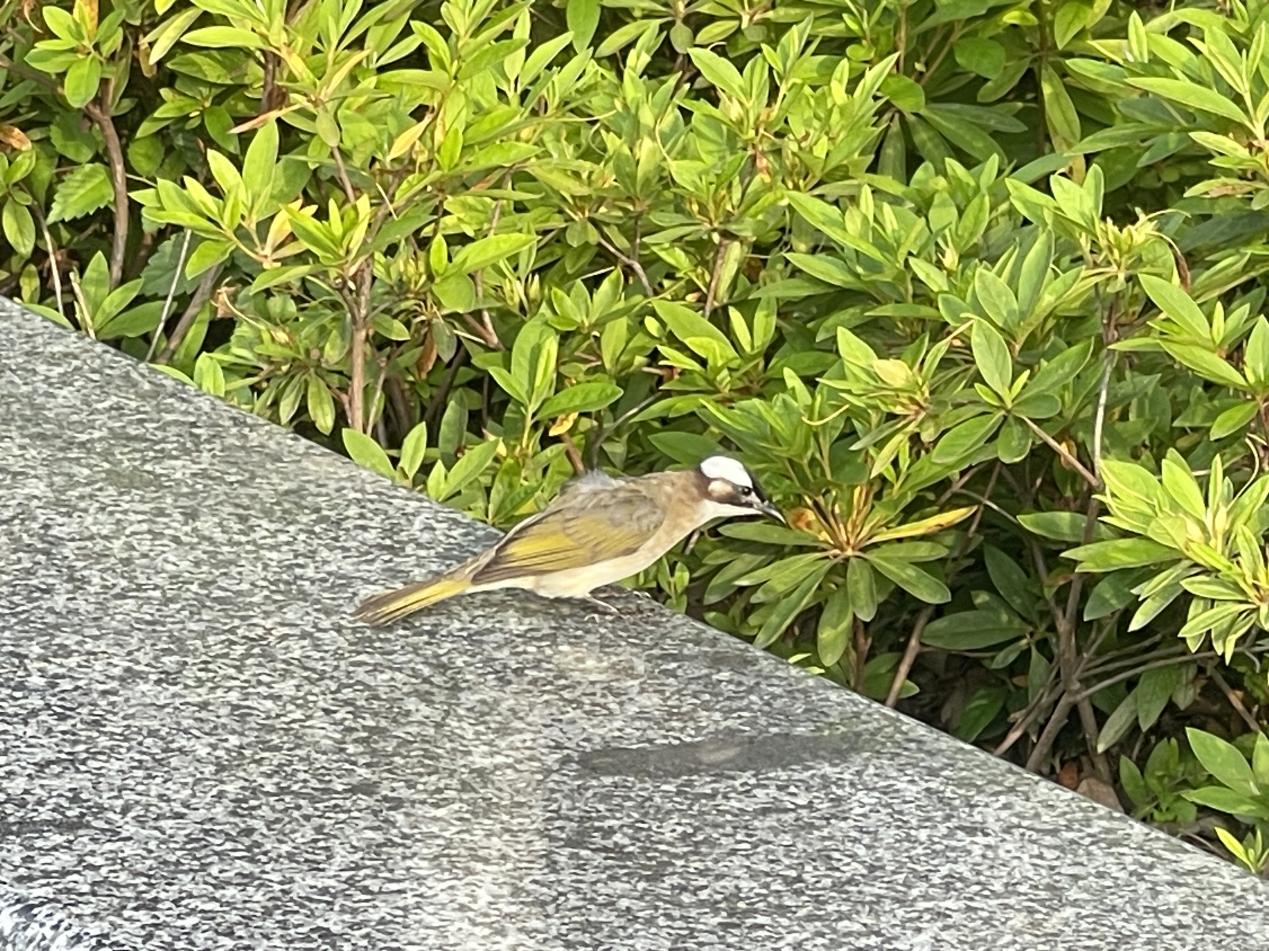
“I saw a light-vented bulbul next to the library yesterday, white head, super cute and seemed not afraid of people at all. It just sat there watching me. A small, unexpected moment of nature on campus.”
- Yueyang
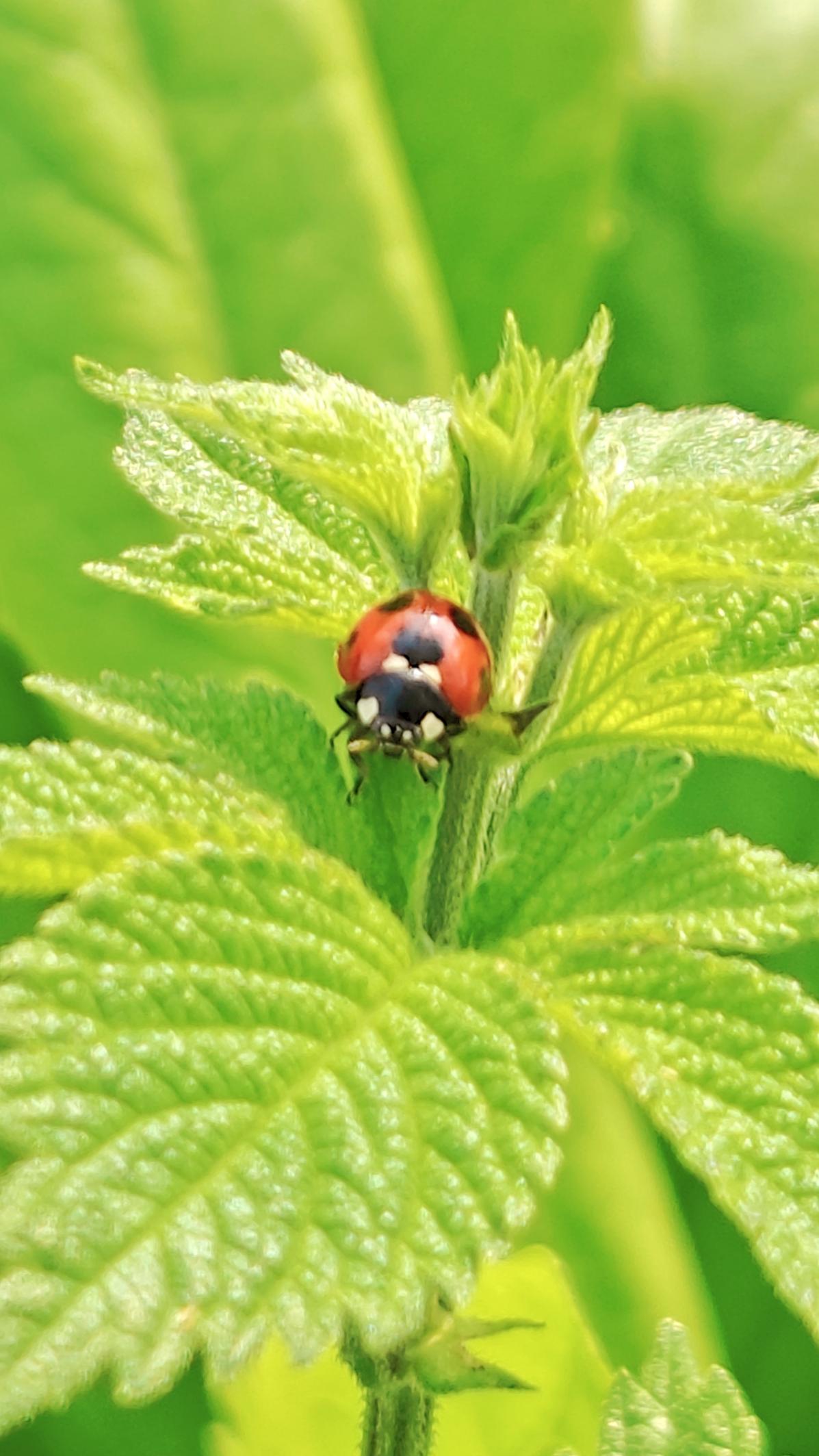
“I love the DKU garden and has encountered beautiful ladybugs and yellow weasels.”
- Xue
These stories capture some of the remarkable human–nature interactions happening on the DKU campus – moments of quiet charm that DKU students hope to inspire each reader to pause, observe, and appreciate the living world around them. Together, they reveal the magic of nature and its remarkable capacity to heal and inspire.
The three students behind this initiative plan to continue growing the “DKU 100 Tiny Wonders” collection. So stay tuned for more interesting stories!
Original WeChat article written by: Shi Feng, Xinxue Wang, Shuyi Shen
Accessible at:https://mp.weixin.qq.com/s/2vHsWiriB-CYbmD-AIhjzA


 苏公网安备 32058302003266号
苏公网安备 32058302003266号
